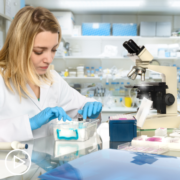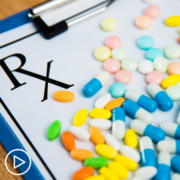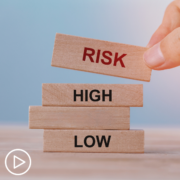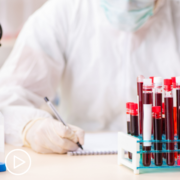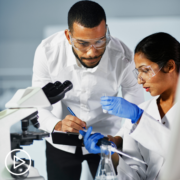Gastric Cancer Treatment and Research Highlights
Gastric Cancer Treatment and Research Highlights from Patient Empowerment Network on Vimeo.
What are the latest advances in gastric cancer treatment and research? Dr. Yelena Janjigian discusses how biomarker testing has advanced gastric cancer treatment and explains research she’s been involved with to improve care.
Dr. Yelena Janjigian is Chief of Gastrointestinal Oncology Service at Memorial Sloan Kettering Cancer Center.
See More From INSIST! Gastric Cancer
Related Programs:

|
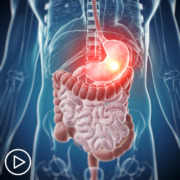
|
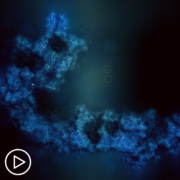
How Do Biomarker Test Results Impact Gastric Cancer Treatment Options? |
Transcript:
Katherine:
I’d like to start by learning about the latest research news. Are there recent advances in gastric cancer that patients should know about?
Dr. Janjigian:
That’s a great question. The field of gastric cancer research has accelerated and evolved immensely over the last three years. We’ve had several important approvals for treatment of metastatic disease both for biomarkers selected population and immunotherapy targeted therapies. So, there’s been a lot of research, a lot of effort and some positive data that the patients and clinicians should be aware of.
Katherine:
And what excites you about the research you’re involved with?
Dr. Janjigian:
I’ve been focused on gastric cancer for nearly two decades. So, my recent advances have really helped to understand how we can improve patient’s survival better, potentially cure more patients, and understand the different subsets of cancer treatments and patients with gastric cancer understanding that not all gastric cancer is the same.
So, I think being able to zoom in on different subsets and target personalized approaches for each individual patient is why I stay in research, why I stay in gastric cancer research because we’ve been able to make some major breakthroughs.
Katherine:
That’s excellent news. How can patients stay up to date with treatment options?
Dr. Janjigian:
That’s a great question. And recently there’s been a lot of resources online through both the big pharma really educating patients with patient-friendly handouts. And many of my big recent papers when we publish them in big journals like Lancet or Lancet Oncology, for example, or JCO, there’s always a patient-friendly handout that comes with that data that helps patients understand some of the endpoints, how do we describe why this study is positive?
Or why is the FDA decided to approve the drug? So, there are many patient handouts that come with some of these papers. And it’s interesting, a lot of my patients come in. When they see me, they say, “Oh, it’s so good to finally meet you. I’ve watched a lot of your videos.” So, because of COVID actually, a lot of the scientific content that used to be just in in-person meetings behind doors for doctors, now it’s all online because a lot of these scientific presentations are now made for virtual content as well.
So, patients have access to it. That’s double-edged sometimes. It’s a little bit of an information overload, and it may actually make patients feel more anxious than reassure them, right? Because it’s a lot of jargon and not too – but some patients find it helpful.
Katherine:
Yeah, I can see that. It can be a double-edged sword.
Dr. Janjigian:
Yeah.

